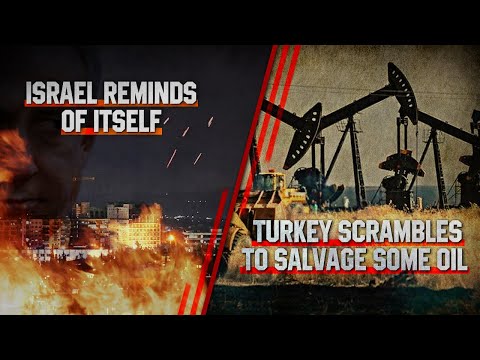
As has become customary in recent weeks, after the relative success of the Axis of Resistance on battlefields across the Middle East, Israel delivered a reminder of its interest in Syria.
On March 16th, Damascus’ air defense repelled a missile barrage, which was heading towards targets surrounding the Syrian capital.
A statement by the Syrian Arab Army said that the missiles had been launched from the direction of the occupied Golan Heights and targeted undisclosed positions around Damascus. Most of the missiles were reportedly intercepted and no casualties were observed. There was minimal damage.
Strikes such as these are commonplace and happen somewhat regularly, especially now in 2021, when Tel Aviv considers its interests under even more threat than usual due to the Biden Administration’s relative passivity towards Iran.
The Israeli strike was not the only attack on Damascus in recent days. On March 15th, Syrian security forces foiled a terrorist attack intended to target unspecified areas in Damascus. As a result, three terrorists were killed and three were arrested. All six were wearing explosive belts.
Separately, in what is likely a positive development for Damascus, Russian forces moved into an oil field and gas field in the northeast Raqqah governorate.
Russian military reinforcements alongside units from the Russian-backed Fifth Armored Division arrived at al-Thawra oil facility which produces around 2,000 bpd.
Earlier, on March 12th, Russian forces entered the Toueinane gas field, also in the same area.
This is a small, but notable shift highlighting a change in the balance of power in northern Syria. Since Russia is allied with Damascus, prior to that most of Syria’s oil went to the US-backed Syrian Democratic Forces or various Turkish proxies. Most of the oil still goes out of Syria, but this is a movement in another direction.
In addition, Russia’s Defense Ministry said that Turkish forces are carry out military movements and acts in Raqqa countryside in violation of a Memorandum of Understanding that Ankara signed with Moscow.
According to a statement, the Russian side is extremely worried about transporting military equipment affiliated to the Turkish armed forces and establishing fortifications and support points in the suburbs of Ain Issa.
This is an attempt at a Turkish response to recent shelling by the Syrian Arab Army in the area surrounding Aleppo, and other positions where Turkish proxies operate. Ankara can’t afford to lose access to all of its cheap oil, and as such needs to provide some semblance of resistance before losing access to it.
Filed under: Syria, Turkey, War on Syria | Tagged: Israeli Aggression, Raqqa, SAA, SDF, Syria oil theft, Turkish Aggression, Zionist entity |
Related posts:
Views: 0
 RSS Feed
RSS Feed

















 March 21st, 2021
March 21st, 2021  Awake Goy
Awake Goy  Posted in
Posted in  Tags:
Tags: 
















